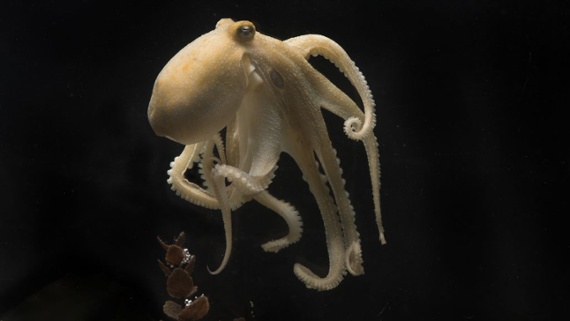Permanently Satisfied {The best Sex (or Worse) ever, You don't want to Have it Again}
 |
(Tom Kleindinst/Marine Biological Laboratory) |
Many animal species die after they reproduce. But in octopus mothers, this decline is particularly alarming: In most species, as an octopus mother's eggs get close to hatching, she stops eating. She then leaves her protective huddle over her brood and becomes bent on self-destruction. She might beat herself against a rock, tear at her own skin, even eat pieces of her own arms.
Now, researchers have discovered the chemicals that seem to control this fatal frenzy. After an octopus lays eggs, she undergoes changes in the production and use of cholesterol in her body, which in turn increases her production of steroid hormones — a biochemical shift that will doom her. Some of the changes may hint at processes that explain longevity in invertebrates more generally, said Z. Yan Wang, an assistant professor of psychology and biology at the University of Washington
Now, researchers have discovered the chemicals that seem to control this fatal frenzy. After an octopus lays eggs, she undergoes changes in the production and use of cholesterol in her body, which in turn increases her production of steroid hormones — a biochemical shift that will doom her. Some of the changes may hint at processes that explain longevity in invertebrates more generally, said Z. Yan Wang, an assistant professor of psychology and biology at the University of Washington
.
Full Story: Live Science (5/18) 
Comments